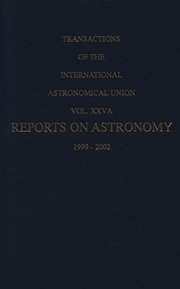No CrossRef data available.
Article contents
Principles for Tertiary-Level Astronomy Courses
Published online by Cambridge University Press: 25 April 2016
Abstract
Any worthwhile tertiary-level course of study should, as its highest priority, reflect the discipline it represents as it is contemporaneously practiced. Were it not to do so, students would be intellectually underprovided. This paper sets out general principles which a first degree-level course in astronomy should aim to provide for its students. No specific syllabi will be attempted but, rather, the paper will outline ranges of topics and their level of treatment. While all students taking such courses should have as professional experience as possible, it must be recognised that most students taking tertiary-level astronomy courses may not become professional astronomers and that such courses will necessarily have to have flexibility to meet local circumstances.
- Type
- Section 3: Initiatives in Astronomy Education
- Information
- Copyright
- Copyright © Astronomical Society of Pacific 2001


